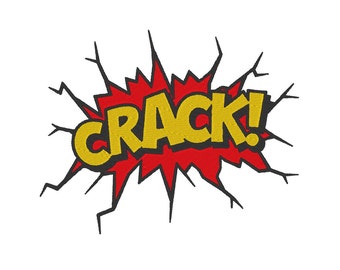You all know what an onomatopoeia is: it is a word whose sound looks like the meaning it represents. A clear example of it might be: 'boom', which clearly represents the sound that a bomb makes. Animal sounds are also onomatopoeias per se, since they also represent in acoustic phonetics the sounds that animals make. Snakes hiss, bugs and insects buzz, cats meow, birds tweet, cows moo, ducks quack ...
Onomotopoeias are also stylistic devices used by poems and writers to make their works more vivid and beautiful. Some onomatopoeias do not exist in themselves, they are simple interjections, such as "argh" to express disgust, or 'achoo' (the sound one makes on sneezing). There are countless onomatopoeic words, words whose meaning can be easily identified if they are correctly pronounced. Let's examine some groups:
1) Violent sounds:
Bang: It represents an explosive noise, similar to the noise of a gun.e.g. 'He made the door bang on his way out.'
Crash: It describes a colliding sound. One of its meaning refers to a vehicle colliding against something or someone, for example, 'the two cars crashed.'
Crack: It makes reference to a breaking sound, for instance, the earth cracks when a volcano erodes. 'The wall in that room cracks at night' or 'I like to crack my knuckles.'
Blast /boom: They refer to a loud noise (such as an explosion), e.g. 'He was killed by the blast of the explosion.'
Thump: It is the sound produced by a heavy object, e.g. 'in the zoo at night all you can hear is the elephants thumping'.
Knock: This usually refers to a hit on a surface that makes a noise, as in 'he knocked the door but there was no answer.'
Pop: Short, quick, unexpected sound,e.g. the cork pops when you open a bottle of wine.
2) Sounds produced by machines or artificial objects:
Beep: A short sound with high pitch. Computers usually beep.
Beep: A short sound with high pitch. Computers usually beep.
Clang/clink: A loud ringing sound produced by a bell or similar object.The bell clangs in villages.
Click: A sharp, mechanic sound. The keys click in the lock
Jingle/jangle/tinkle: To produce a loud, harsh sound.You all know the Christmas carol: 'jingle bells' or the famous fairy character in the Peter Pan story, Tinkerbell.
Ring: It's the sound produced by a telephone or the bell of a bicycle, as seen in 'the phone rang all the afternoon'.
Screech: To produce a harsh, annoying sound. The engines of cars or tree branches can screech.
Tick: a clicking sound. Clocks tick (in fact, they make tick-tock).
3) Animal sounds (I will be writing a post about this in the future).
Moo (cows), mew/meow (cats), quack (ducks), tweet (birds), hiss (snakes), buzz (insects), ...
4) Other sounds:
Burp: It is a synonym for 'belch'. What you do after a meal (with your mouth) you know, to release gases.
Chatter: It means 'talking loudly and fast'. When people gossip, you can hear them chatter.
Whisper: To speak in a quiet voice, as in 'he whispered the words in my ear.'
Splash: It refers to the sound made by the water. In summer, children like splashing in the water.
Boo: A disapproving sound. You usually boo at a lousy sportsperson, for instance.
Well, there are far more onomatopoeias in the English language. What makes them interesting is that in English some onomatopoeias have a true identity. They become nouns and verbs with full meaning beyond the sound they represent.they are not usually just sounds, they become verbs and nouns that we can use in conversation. In Spanish, we can use the word 'splash' to refer to the sound of the water, but in English, other than this, we can use it to refer not only to the sound but also to the action. English, as you have seen has a lot of quirks, remember the auto-antonyms entry I wrote some days ago ?
What can you do now after reading this post ? Go back to the words in bold and pronounce them, enjoy their sounds and reflect on their meanings. You'll find out that, at the end of the day, English is quite a logical and interesting language after all !




No comments:
Post a Comment